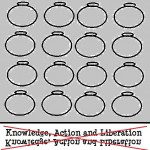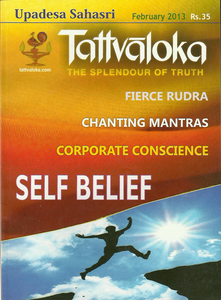 Most readers will be aware of the Brahmasutras – the third ‘leg’ of the prasthAna traya (the threefold set of scriptures that constitute the authority for Advaita – and some will even have read them! And you may also know that the first, famous sutra is athAto brahma jij~nAsA – Now, therefore, an enquiry into Brahman. It is the claim that Brahman forms the subject matter of Vedanta and has to be enquired into if we are to gain Self-knowledge.
Most readers will be aware of the Brahmasutras – the third ‘leg’ of the prasthAna traya (the threefold set of scriptures that constitute the authority for Advaita – and some will even have read them! And you may also know that the first, famous sutra is athAto brahma jij~nAsA – Now, therefore, an enquiry into Brahman. It is the claim that Brahman forms the subject matter of Vedanta and has to be enquired into if we are to gain Self-knowledge.
The author of the Brahmasutras is said to be vyAsa, also known as bAdarAyaNa and the purport of the work is to summarize, in an extremely abbreviated form, the philosophy of vedAnta, showing how this naturally derives from the (last portion of) Vedas. (Of course, this does not mean a summary of Advaita. Others have written commentaries on the Brahmasutras and shown how it is commensurate with the philosophies of dvaita and vishiShTAdvaita.)
What fewer readers will know is that there is a similar (much longer) work, called the pUrva mImAMsA sUtra-s, written by the ‘father’ of pUrva mImAMsA philosophy, Jaimini. And, surely not coincidentally, the first sutra in this work is athAto dharma jij~nAsA – Now, therefore, an enquiry into dharma. This makes the claim that dharma forms the subject matter of the Vedas and has to be enquired into if we are to gain liberation from saMsAra. The word ‘dharma’ is often translated as ‘duty’ and the meaning of this word relates to what we ought to be doing with our lives. Their claim is that knowledge is useless, since it cannot produce any benefit. They utilize only the first part of the Vedas – the karma kANDa – believing that only actions can achieve anything and that, consequently, we must assiduously follow the injunctions, rituals and meditations prescribed there in order to attain liberation at some point in the future.
Continue reading →






